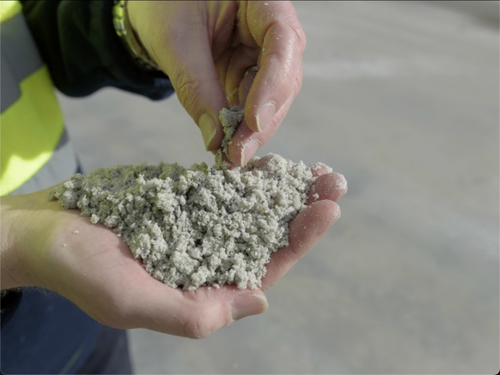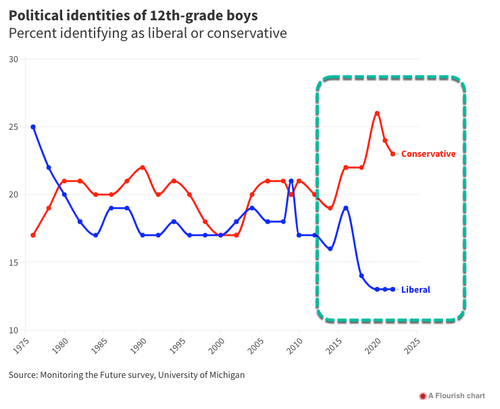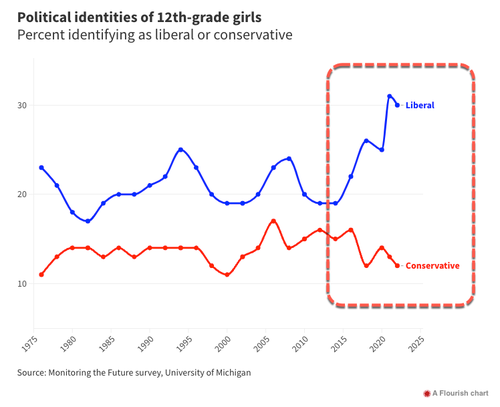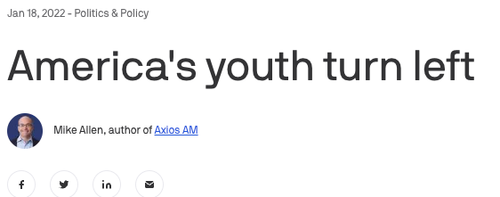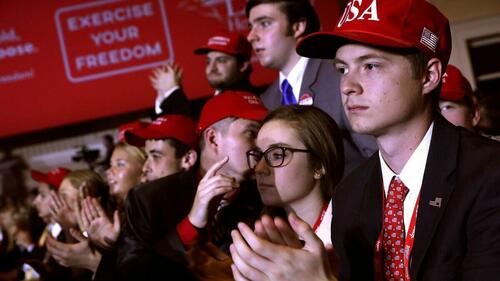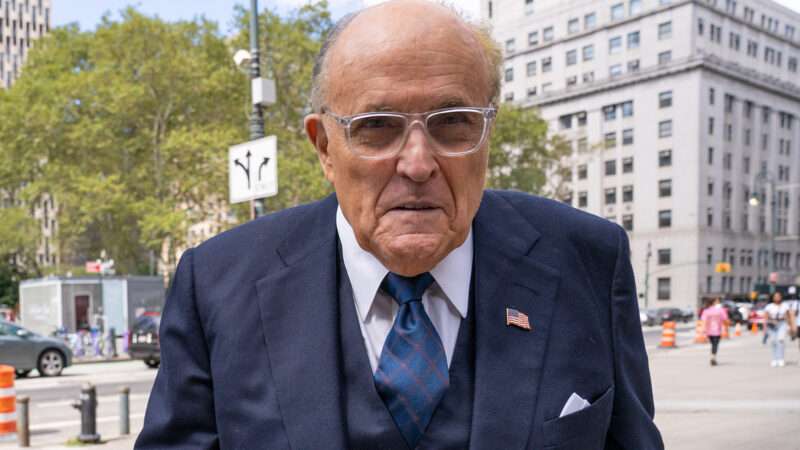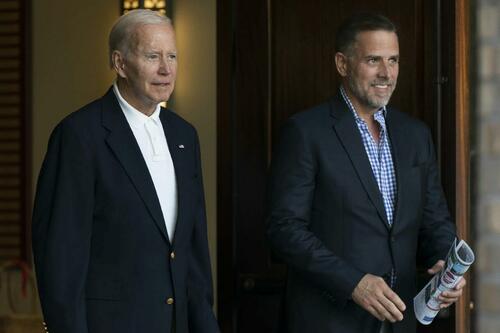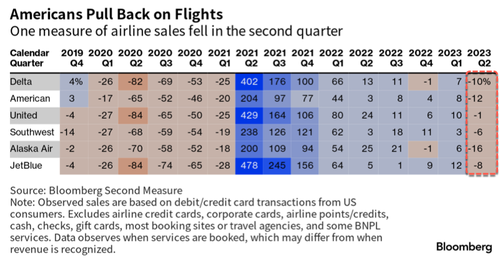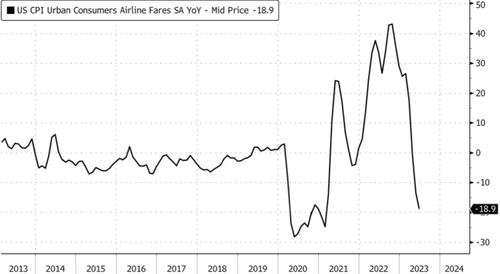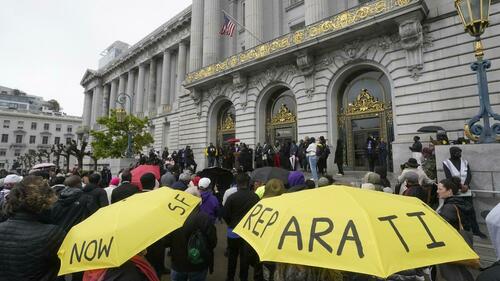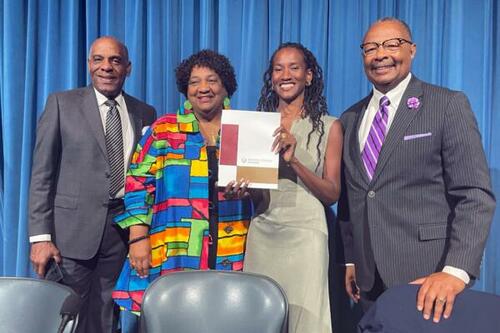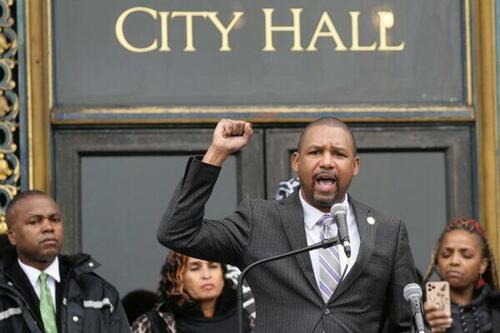Late Friday night, a federal judge in Florida tossed a lawsuit in which former President Donald Trump argued that CNN had defamed him by labeling his stolen-election fantasy “the Big Lie.” A few days earlier in a different defamation case, Rudy Giuliani, who as Trump’s lawyer helped propagate the claim that systematic fraud delivered the White House to Joe Biden, belatedly admitted that he had falsely and repeatedly accused two Georgia election workers of participating in that imaginary conspiracy.
Whatever you think of the notion that people have a right to protect their reputations in court, the conjunction of those two developments starkly illustrates the difference between use and abuse of defamation law as it currently stands. Trump has a long, astonishingly petty history of filing (or threatening to file) frivolous defamation claims against critics who irk him, and his CNN lawsuit was dismissed for an entirely predictable reason: He failed to allege that the channel had published verifiably false statements of fact about him. In the lawsuit against Giuliani, by contrast, Ruby Freeman and Wandrea Moss (who are mother and daughter) plausibly allege that he defamed them by publicly claiming they had deliberately introduced and processed thousands of phony Biden ballots.
Trump’s lawsuit, which he filed last October, cited four CNN articles and one broadcast.
In a January 25, 2021, essay under the headline “Trump’s big lie wouldn’t have worked without his thousands of little lies,” CNN Opinion contributor Ruth Ben-Ghiat called Trump “a leader of authoritarian intentions and tendencies,” likening him to “China’s Xi Jinping” and “Hungary’s Viktor Orbán.” She said “Trump’s ‘Big Lie'” about the election was “a brazen falsehood with momentous consequences.”
In a July 5, 2021, piece, CNN Editor-at-Large Chris Cillizza explicitly invoked Nazi propagandist Joseph Goebbels. Cillizza began by quoting something Trump had said at a rally in Sarasota, Florida, two days before: “If you say it enough and keep saying it, they’ll start to believe you.”
Although Trump was talking about deceptive claims by Democrats, Cillizza suggested that observation described what Trump himself was trying to do by claiming the election had been stolen: “One can only hope that Trump was unaware that his quote was a near-replication of this infamous line from Nazi Joseph Goebbels: ‘If you tell a lie big enough and keep repeating it, people will eventually come to believe it.'” In another CNN essay two months later, Cillizza said Trump “continued to push the Big Lie that the election was somehow stolen despite there being zero actual evidence to back up that belief.”
On CNN’s State of the Union in January 2022, Jake Tapper said Trump was “continuing to push his big lie,” a phrase he used several times. The following month, CNN published another Cillizza piece complaining that “Trump’s election lie is on the march.” Citing a “new poll” indicating that “Trump[‘s] 2020 election lie is working,” Cillizza bemoaned “the insidiousness of Trump’s big lie,” saying “his false claims are wheedling their way into the consciousness of the public.”
The gravamen of Trump’s complaint, as summarized by U.S. District Judge Raag Singhal (a Trump appointee), was that “the use of the phrase ‘the Big Lie’ constitutes defamation per se because it ‘create[s] a false and incendiary association between the Plaintiff and Hitler.'” Trump claimed that phrase is defamatory because it “has incited readers and viewers to hate, contempt, distrust, ridicule, and even fear,” thereby “causing injury to the Plaintiff, the Plaintiff’s reputation, and the Plaintiff’s political career.”
Based on CNN’s use of that phrase, Trump claimed, “viewers and readers ‘understood that Plaintiff would be Hitler-like in any future political role.'” Trump said the resulting damages exceeded $75,000, and he sought punitive damages of $475 million—reminiscent of his half-billion-dollar claim against a financial journalist who dared to suggest that Trump’s fortune was smaller than he asserted.
“This case involves political speech of the highest order,” Singhal notes. “The First Amendment ‘has its fullest and most urgent application precisely to the conduct of campaigns for public office,'” and the speech that provoked Trump’s lawsuit “involves reporting and commentary on Trump’s challenges to the legitimacy of the 2020 presidential election.”
The fatal problem with Trump’s complaint, Singhal says in dismissing the lawsuit with prejudice, is that it “alleges no false statements of fact.” The comments that offended him “are opinion, not factually false statements, and therefore are not actionable.”
While “Trump argues that CNN’s motivation for describing his election challenges as ‘the Big Lie’ was to undermine Trump’s political standing,” Singhal adds, “political motivation does not establish falsity.” And although “the Court finds Nazi references in the political discourse (made by whichever ‘side’) to be odious and repugnant,” he writes, “bad rhetoric is not defamation when it does not include false statements of fact.”
The accusations that Giuliani lodged against Freeman and Moss, by contrast, were false statements of fact, as he now concedes. In the December 2021 lawsuit that the two women filed against Giuliani and One America News Network (OAN) in the U.S. District Court for the District of Columbia, they noted that Giuliani had repeatedly claimed surveillance video from Atlanta’s State Farm Arena, where Fulton County absentee ballots were tallied, showed that election workers, including two individuals eventually identified as Freeman and Moss, intentionally counted a massive number of phony ballots.
On December 3, 2020, Giuliani and other members of Trump’s legal team testified before the Georgia Senate about alleged election irregularities. A Trump campaign representative said the purported fraud at State Farm Center involved 18,000 ballots. She referred to “suitcases of ballots [stored] under a table, under a tablecloth”; identified the election workers as “the lady in purple,” “two women in yellow,” and “the lady with the blond braids also, who told everyone to leave”; and stated that “one of them had the name Ruby across her shirt somewhere.”
Giuliani amplified those claims on Twitter that day. He retweeted a post in which fellow Trump campaign lawyer Jenna Ellis averred that “thousands of ballots” were “pulled from under a table in suitcases and scanned.” And he claimed the evidence of that crime was irrefutable: “The video tape doesn’t lie. Fulton County Democrats stole the election. It’s now beyond doubt.”
The next day, Giuliani sent three tweets in the same vein. He asserted that “the Georgia middle of the night theft of thousands of votes changes everything.” He said questioning that conclusion was “like disputing a bank robbery when you have 4 cameras showing the robbery.” And he promoted a podcast in which he said he would “examine the VIDEO EVIDENCE.”
Georgia Secretary of State Brad Raffensperger (a Republican who supported Trump’s reelection) and the Georgia Bureau of Investigation looked into these claims and found no evidence to support them. In a December 4, 2020, tweet, Gabriel Sterling, Georgia’s voting implementation manager, said “the 90 second video of election workers” that supposedly proved outcome-altering fraud actually “shows normal ballot processing.” He elaborated on that conclusion in a lengthy Newsmax interview that evening.
In his tweet, Sterling cited a debunking by Lead Stories. Georgia Public Broadcasting and PolitiFact weighed in with their own refutations. At a December 7 press conference, Raffensperger and Sterling reiterated the conclusion that Giuliani’s allegations were without merit.
Undeterred, Giuliani identified Freeman by name during a December 23, 2020, podcast, describing her as someone with “a history of voter fraud participation.” Not only were there fake ballots, he said, but they were counted multiple times. “It’s quite clear, no matter who they’re doing it for, they’re cheating,” he added. “It looks like a bank heist.”
On another podcast two days later, Giuliani said “Ruby Freeman and her crew” got “everybody out of the center” with a “false story” about a “water main break,” and then “all of a sudden the crooks sprang into action.” He repeated the story during a December 30, 2020, podcast and an OAN interview the same day. “For a hundred years,” he said on OAN, “this film will show” that “there was an attempt to steal” the 2020 election.
Trump brought up the debunked claim yet again during the notorious January 2, 2021, telephone conversation in which he urged Raffensperger to “find” the votes necessary to overturn Biden’s victory in Georgia. Based on “the tape that’s been shown all over the world,” Trump referred to “the phony ballots of Ruby Freeman,” which he said totaled “18,000.” He called her “a professional vote scammer and hustler,” saying that “reputation” was “known all over the internet.”
Raffensberger patiently rebutted that claim once again: “You’re talking about the State Farm video. And I think it’s extremely unfortunate that Rudy Giuliani or his people…sliced and diced that video and took it out of context.” The “full run of the tape,” he explained, showed that nothing untoward had happened. When Trump asserted that Georgia election workers “put the votes in three times,” Raffensperger replied that no such thing had happened: “We did an audit of that, and we proved conclusively that they were not scanned three times.”
Two days later, Sterling held another press conference to rebut the allegations that Trump had made during the phone call. Although Trump’s lawyers “had the
entire tape,” he complained, they “intentionally misled the State Senate, the
voters and the people of the United States about this.”
Giuliani continued the deception in OAN interviews the same month, that June, that July, and that December, less than two weeks before Freeman and Moss filed their lawsuit. OAN—which had repeatedly accused Freeman by name, including segments in which Giuliani did not appear—reached a settlement with her and her daughter in May 2022. That left Giuliani as the sole remaining defendant in the case.
Last Tuesday, Giuliani filed a “nolo contendre stipulation” saying he was “desirous to avoid unnecessary expenses in litigating what he believes to be unnecessary disputes.” Although he “believes that he has legal defenses to this Complaint,” it says, he “does not contest” that he “made the statements of and concerning the Plaintiffs” and “does not dispute for purposes of this litigation” that “the statements carry meaning that is defamatory per se.” The stipulation adds that “to the extent the statements were statements of fact and other wise actionable, such actionable factual statements were false.”
Giuliani’s nevertheless says his stipulation “does not affect” his “argument that his statements are constitutionally protected statements or opinions.” But he does not contest “the factual elements of liability” for “intentional infliction of emotional distress and other related tort claims,” although he is not conceding that his actions “caused Plaintiffs any damages” or agreeing on “the amount of any damages.”
What were the consequences of being “known all over the internet,” as Trump put it, for engaging in a massive election fraud that never happened? “As Defendants’ false accusations began to spread across the internet,” the original complaint says, “Ms. Freeman received at least 420 emails and 75 text messages, including one that read, ‘We know where you live, we coming to get you.'” A local police officer “answered more than 20 harassing calls on Ms. Freeman’s cell phone,” and she was “ultimately forced to change her phone number and email address.” Strangers “camped out at Ms. Freeman’s home and/or knocked on her door.” She received pizza deliveries she never ordered and abusive Christmas cards.
On January 6, 2021, the day of the Capitol riot by Trump supporters, the complaint says, “a crowd surrounded Ms. Freeman’s house, some on foot, some in vehicles, others equipped with a bullhorn. Fortunately, Ms. Freeman had followed the FBI’s
advice and had temporarily relocated from her home. She was not able to return for two months.” She later installed “eleven cameras and three motion sensors in an effort to safeguard her own home.” She “has lost friendships” and was “forced to deactivate the social media pages for herself and her business, Lady Ruby’s Unique Treasures, a pop-up clothing boutique.”
When “people recognize her in public and call out her name, Ms. Freeman is fearful,” the complaint says. “Her experiences over the months since Defendants’ defamation campaign began have taught Ms. Freeman to be distrustful of strangers and concerned for her safety. To this day, Ms. Freeman continues to receive threatening communications.” The fallout for her daughter has been similar.
It took nearly three years for Giuliani to admit that the video he claimed would go down in history as evidence of a stolen election did not show what he repeatedly insisted it did. Meanwhile, the stolen-election narrative that he and Trump promoted had real consequences for real people, as illustrated by this case, the jaw-dropping $788 million settlement that Fox News agreed to pay for amplifying their claims, and ongoing litigation involving companies and individuals they falsely accused of participating in a vast criminal conspiracy.
That’s leaving aside the distrust, acrimony, and violence that Giuliani et al. fostered by stubbornly insisting, against all evidence to the contrary, that Trump actually won reelection. But the real outrage, according to Trump, is that critics dared to call him out for his wild allegations.
The post Giuliani Admits His Oft-Told Tale of Georgia Election Fraud Was Not True appeared first on Reason.com.
from Latest https://ift.tt/jhtoqTa
via IFTTT


